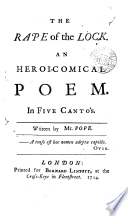
“But when mischief mortals bend their will,
How soon they find fit instruments of ill!”
Canto III, line 125.
The Rape of the Lock (1712, revised 1714 and 1717)
